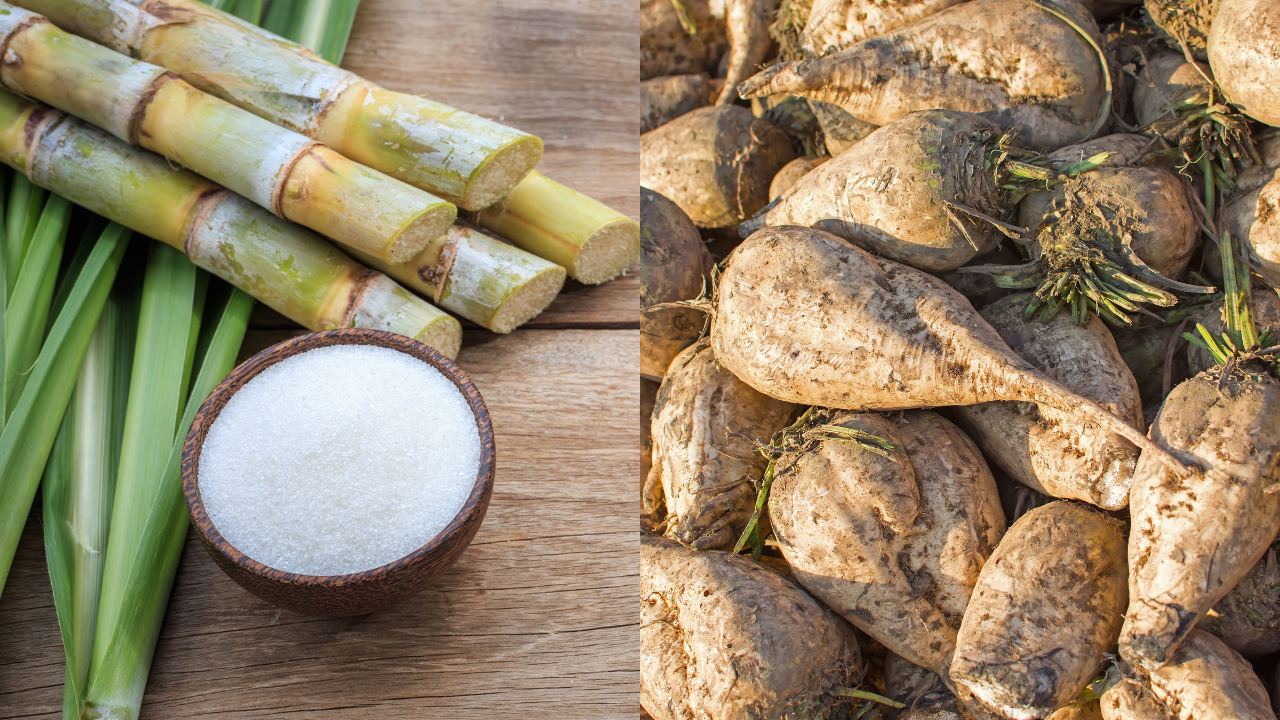A key factor in the beet sugar vs cane sugar debate is how each kind impacts baking.
A Thorough Check Out the Conveniences and Uses of Beet Sugar Vs Cane Sugar for Sweetening Options
In the realm of sweetening, both beet sugar and cane sugar offer unique benefits and culinary duties, albeit with comparable dietary accounts. While beet sugar boasts a neutral taste suitable for different recipes, cane sugar enhances recipes with refined caramel touches.
Beginnings and Handling Approaches of Beet Sugar and Cane Sugar
Beet sugar and cane sugar, two primary sweeteners, stem from really distinctive plants and undergo various handling approaches. Beet sugar is drawn out from the sugar beet, an origin veggie, primarily grown in cooler climates. The handling includes cutting the beetroots to remove the juice, which is then detoxified and taken shape into sugar. This technique is reasonably efficient, permitting sugar healing from multiple stages of the procedure.
Conversely, cane sugar comes from the sugarcane plant, a tropical turf. Its processing starts with harvesting the cane, squashing it to obtain the juice, and after that steaming this liquid to create sugar crystals.
Nutritional Comparison: Beet Sugar Versus Cane Sugar

When comparing the dietary web content of beet sugar and cane sugar, it becomes apparent that both types offer a comparable power worth. Each supplies concerning 4 calories per gram, largely as sucrose, which is a simple carb. This similarity includes their lack of necessary nutrients; neither sort of sugar includes substantial quantities of vitamins or minerals. Both beet and cane sugar are 99.9% pure sucrose, making them basically identical in regards to calorie material and nutritional profile.
Nonetheless, small distinctions may occur from the marginal trace aspects that remain after processing, though these are too minor to effect general health. Walking cane sugar can preserve traces of molasses, depending on the degree of refining, which might include small quantities of calcium, iron, and potassium. Beet sugar, on the various other hand, generally undergoes a process that gets rid of these trace elements much more completely, resulting in an also purer form of sucrose.
Culinary Utilizes and Flavor Profiles
Despite their nutritional resemblances, beet sugar and cane sugar diverge significantly in their cooking applications and taste nuances. Beet sugar, derived from sugar beetroots, commonly has an extremely neutral taste, making it a recommended option in cooking where it effortlessly integrates without modifying the flavor account of various other ingredients.
Cooks and home cooks alike choose sugars based upon these features. While both sugars function in a similar way in regards to sweetness and physical residential properties, the slight taste difference can affect the outcome of a recipe dramatically, directing the choice between beet and cane sugar based upon the preferred end outcome in cooking developments.
Health Effects of Consuming Beet and Cane Sugars
Although beet sugar and cane sugar are commonly utilized mutually in food preparation and cooking, their health and wellness effects can vary discreetly due to their distinct processing methods. Both sugars provide regarding the same amount of calories and carbohydrates per teaspoon, essentially providing similar energy contributions without any type of innate nutritional benefits. Nonetheless, the refining procedure for every sugar can change the presence of trace minerals and compounds, although these variations are usually marginal and not substantial enough to influence one's health and wellness meaningfully.
The key health and wellness issue with both kinds of look at these guys sugar refer to their payment to extreme calorie consumption, possibly causing weight gain, and involved illness like type 2 diabetes and heart problem when consumed in huge quantities. Consequently, no matter the source, small amounts is type in eating beet or cane sugars. Health and wellness find out professionals often recommend limiting included sugars in any kind of form to keep optimum health results.
Ecological Effect and Sustainability of Sugar Production

Alternatively, sugar beet handling has a tendency to generate big quantities of pulp waste, which can be repurposed as animal feed or converted into bioenergy, thereby minimizing some ecological impacts (beet sugar vs cane sugar). Inevitably, the sustainability of sugar production hinges on taking on even more green farming techniques and waste management methods to reduce the ecological impact of both sugar kinds

Verdict
Beet sugar is my link notable for its sustainability and neutral taste, whereas cane sugar is prized for its abundant flavor. Customers ought to think about these elements, along with the environmental implications of sugar production, to make educated selections about sugar intake that align with cooking needs and moral values.